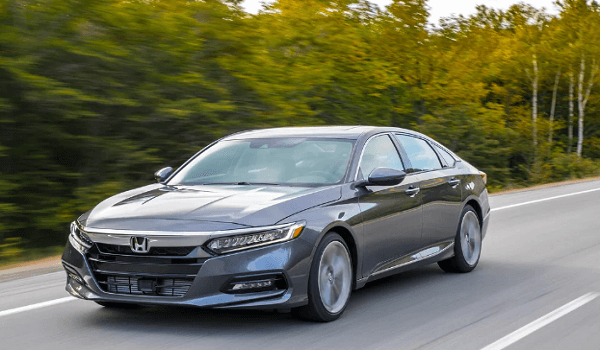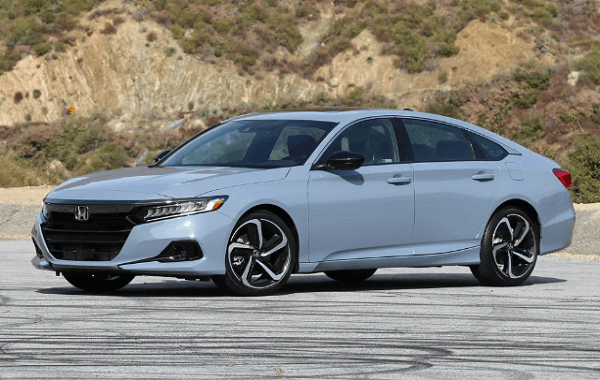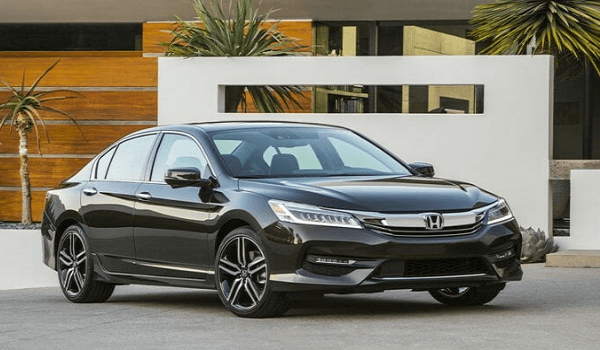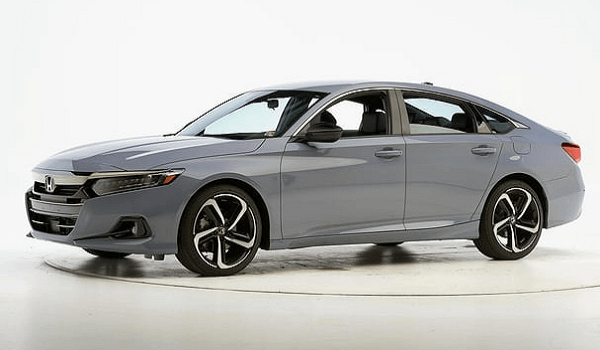How Long Does Honda Accord Last – Honda Accord is one of the most popular cars on the road today, known for its reliability, comfort, and affordability.
But one question that car buyers often ask is, “How long do Honda Accords last?” It’s a valid question considering the investment involved in buying a car.
So, in this article, we will dive deep into the longevity of Honda Accords and the factors that affect their lifespan.
Honda Accord: A Brief Overview

Honda Accord is a mid-size car manufactured by Honda, a Japanese automaker. It first hit the market in 1976 and has undergone several generations of upgrades and improvements.
The car’s popularity is evident in its sales figures, with over 14 million units sold globally as of 2021.
The Honda Accord is available in both sedan and coupe body styles, with various engine options, including a hybrid powertrain.
The car’s features and specifications vary depending on the model year, but some of its most notable features include:
- The comfortable and spacious cabin
- Fuel-efficient engine options
- Advanced safety features
- User-friendly infotainment system
How Long Do Honda Accords Last?

Now, to answer the main question: how long do Honda Accords last? The answer is that Honda Accords can last for a very long time if they are well-maintained.
According to a study by iSeeCars, Honda Accords are among the top 10 cars that can last over 200,000 miles.
This study is based on an analysis of over 11 million cars sold in 2020.
On average, Honda Accords can last between 200,000 to 300,000 miles if they are regularly serviced and maintained.
However, the lifespan of a Honda Accord can vary depending on several factors, including:
Maintenance and Service
Regular maintenance and service are essential to keep any car running smoothly and extend its lifespan.
Honda recommends that Accord owners follow the manufacturer’s maintenance schedule, which includes regular oil changes, tire rotations, and brake inspections.
Failure to follow the recommended maintenance schedule can lead to premature wear and tear, engine problems, and other issues that can shorten the car’s lifespan.
Driving Conditions
Driving conditions can have a significant impact on a car’s lifespan. For instance, if you frequently drive on rough roads or in extreme weather conditions, your Accord’s suspension, brakes, and tires will wear out faster, reducing the car’s overall lifespan.
Similarly, if you regularly drive in stop-and-go traffic, your engine and transmission will experience more stress, leading to premature wear and tear.
Driving Habits
Your driving habits can also affect your Accord’s lifespan. If you are a reckless driver who frequently speeds, brakes suddenly, or accelerates harshly, you are putting more stress on your car’s components, causing them to wear out faster.
On the other hand, if you drive gently, accelerate smoothly, and brake gradually, you are reducing the strain on your car’s components, helping to extend its lifespan.
Model Year and Mileage

The model year and mileage of your Honda Accord can also affect its lifespan. Newer models generally have better technology and materials, making them more durable and long-lasting.
However, a well-maintained older Accord can also last a long time. Similarly, a car with higher mileage will have more wear and tear, reducing its overall lifespan.
Factors That Can Affect Honda Accord’s Longevity

Apart from the factors mentioned above, several other factors can affect a Honda Accord’s longevity. These include:
Rust and Corrosion
Honda Accords are known for their rust-resistant bodies, but they are not immune to rust and corrosion.
Exposure to moisture, salt, and other corrosive substances can cause rust and corrosion to form on the car’s body and undercarriage, leading to structural damage that can shorten the car’s lifespan.
To prevent rust and corrosion, it’s essential to regularly wash your Accord and have any signs of rust treated promptly.
Rust can also spread quickly, so it’s best to address the issue as soon as possible.
Timing Belt and Water Pump Replacement
The timing belt and water pump are critical components of a Honda Accord’s engine. The timing belt controls the timing of the engine’s valves, while the water pump circulates coolant to prevent the engine from overheating.
Honda recommends replacing the timing belt and water pump every 90,000 miles or seven years, whichever comes first.
Failure to replace these components can cause significant engine damage, reducing the car’s overall lifespan.
Transmission Issues
Transmission problems are common in Honda Accords, especially those with high mileage. Symptoms of transmission problems include slipping gears, hesitation, and delayed shifting.
Neglecting transmission issues can cause significant damage to the transmission, leading to a costly repair or replacement.
Regular transmission fluid changes can help prevent transmission issues, and it’s essential to address any symptoms promptly to avoid further damage.
Electrical Issues
Honda Accords are known for their reliable electrical systems, but they are not immune to electrical problems.
Common electrical issues include malfunctioning power windows, malfunctioning door locks, and problems with the car’s lighting system.
Electrical issues can be caused by faulty wiring, corroded connections, or damaged components. It’s essential to have any electrical issues diagnosed and repaired promptly to avoid further damage to the car’s electrical system.
Related Articles:
- The 12 Best Honda Sports Cars Models Ever Made
- How Long Do Honda Pilots Last: A Comprehensive Guide
- How Long Do Honda CR-V Last: A Comprehensive Guide
- How Long Do Honda Fit Last: A Comprehensive Guide
- How Long Do Honda Transmissions Last: A Comprehensive Guide
- How to Disable Honda Accord Alarm? Full Guide
- How to Start Honda CR-V With Manual Key
- How to Program Honda Key to Start Car: Full Guide
- How to Disable Hondalink Tracking: Full Guide
Tips to Extend the Lifespan of Your Honda Accord
Regular maintenance and service are the best ways to extend your Honda Accord’s lifespan, but there are several other things you can do to keep your car running smoothly. Here are some tips:
Drive Gently
Driving gently can help reduce the strain on your car’s components, helping to extend its lifespan.
Accelerate smoothly, brake gradually, and avoid sudden movements that can put stress on your car’s suspension, brakes, and transmission.
Check Fluid Levels Regularly
Checking your car’s fluid levels regularly can help prevent engine damage and other issues that can shorten your car’s lifespan.
Check the oil, coolant, brake fluid, and transmission fluid levels regularly and top up as needed.
Replace Worn Out Components Promptly
Worn-out components can cause further damage to your car and shorten its lifespan. If you notice any signs of wear and tear on your car’s components, such as brake pads, tires, or suspension, have them replaced promptly.
Avoid Overloading Your Car
Overloading your car can put unnecessary stress on its suspension, brakes, and transmission, leading to premature wear and tear.
Avoid carrying excess weight in your car and follow the manufacturer’s recommended weight limits.
Summary: How Long Do Honda Accord Last
So, how long do Honda Accords last? In summary, Honda Accords can last a very long time if they are well-maintained and serviced regularly.
Regular maintenance, careful driving habits, and addressing any issues promptly can help extend your car’s lifespan.
While the longevity of a Honda Accord can vary depending on several factors, following these tips can help you get the most out of your car and keep it running smoothly for years to come.